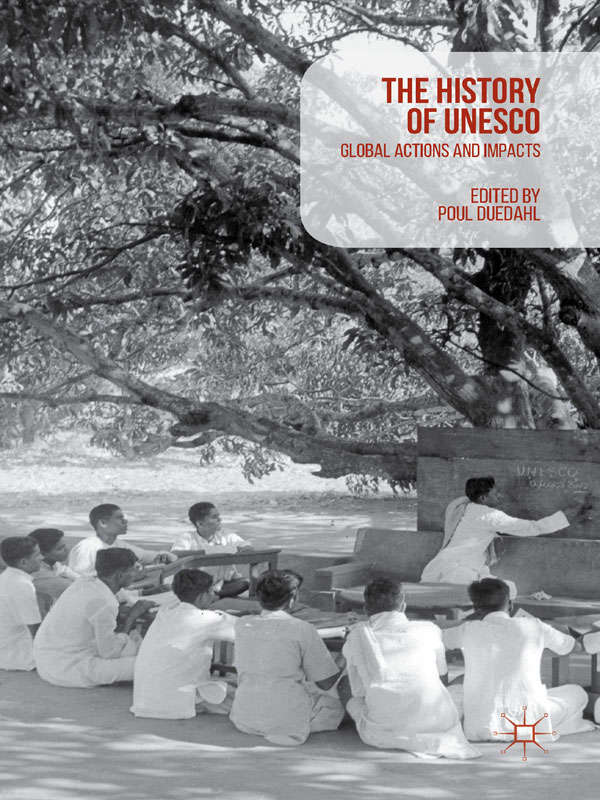Le livre, "A History of UNESCO", est rédigé par le professeur Poul Duedahl et publié par Palgrave Macmillan en 2016.Cette publication est l'un des accomplissements du projet Histoire globale de l'UNESCO, dirigé par Poul Duedahl et financé par le Conseil danois pour la recherche indépendante. Ce projet a été inspiré par le Projet Histoire de l'UNESCO; Poul Duedahl participait à la première conférence internationale organisée dans le cadre de ce projet à l'occasion du 60éme anniversaire de l'UNESCO, en 2005.
La publication est un ensemble de 15 études, en plus de l'introduction générale. Parmi les contributions figurent des textes extrêmement intéressants tels que le chapitre de Céline Giton sur la politique du livre de l'UNESCO, basé sur sa thèse de doctorat sur le même sujet. Le texte écrit par Edgardo C. Krebs, anthropologue, est un récit émouvant et intense sur l'idéalisme de l'UNESCO au cours de ses premières années, vu à travers le prisme de l'engagement d'un autre anthropologue, Alfred Métraux, avec le Courrier de l'UNESCO et le combat contre le racisme. Parmi les multiples autres chapitres intéressants, on trouve des études sur des activités peu connues mais importantes, comme des films d'information et la création des communautés d'enfants. Les sciences naturelles sont, malheureusement, absentes de ce livre mais en ce qui concerne les autres domaines du mandat de l'UNESCO, les lecteurs vont trouver plein de contenu pour la réflexion et la découverte.
_____
"A History of UNESCO"
Edited by professor Poul Duedahl, was published by Palgrave Macmillan in 2016. The book is one of the results of the Global UNESCO History Project, directed by Poul Duedahl and funded by the Danish Council of Independent Research. This project was inspired by UNESCO's own History Project; Poul Duedahl participated, as a student , in the first international conference organized on the occasion of UNESCO's 60th anniversary, at UNESCO Headquarters in 2005.
The book is a compilation of 15 studies, in addition to Duedahl's general introduction. Among the contributions are extremely interesting texts, such as Céline Giton's chapter on UNESCO's world book policy, which is based on her PhD on the same topic. The text written by Edgardo C. Krebs, anthropologist,is a moving and intense account of the idealism of the early years of UNESCO, through the prism of the involvement of another anthropologist, Alfred Métraux, with the UNESCO Courier and the fight against racism. Among many other interesting chapters, there are studies of little known, but important, UNESCO activities, such as information films and the establishment of children communities. Natural sciences are, unfortunately, absent from the book but in other fields of the mandate of UNESCO, readers will find plenty of material for thought, reflection and new knowledge.





